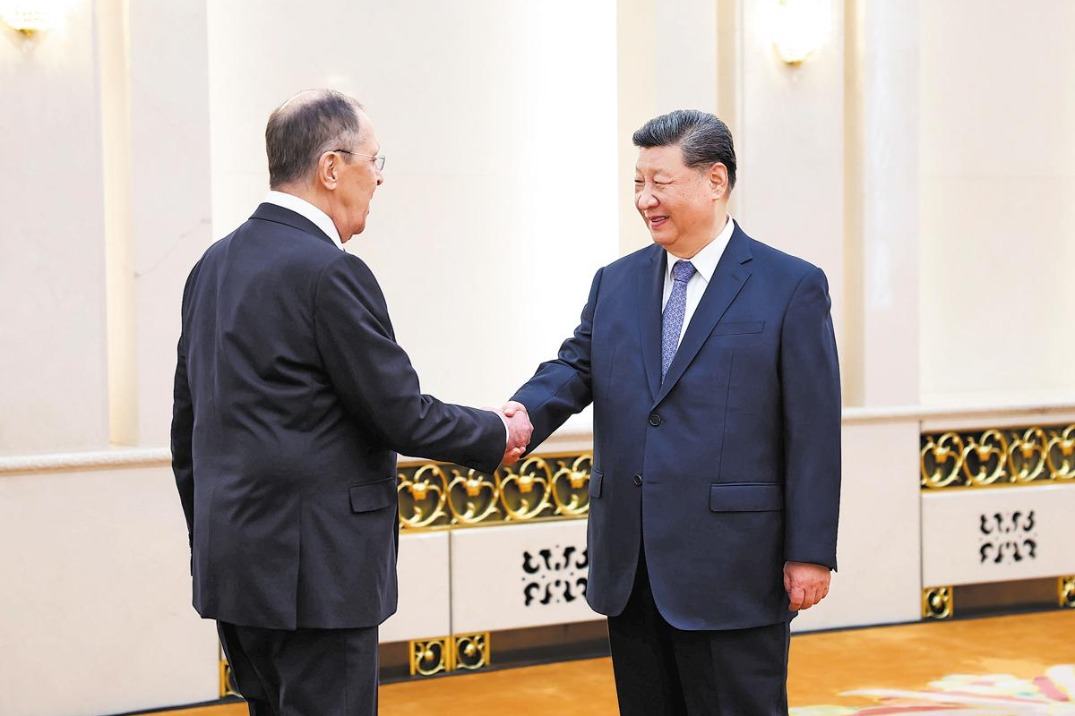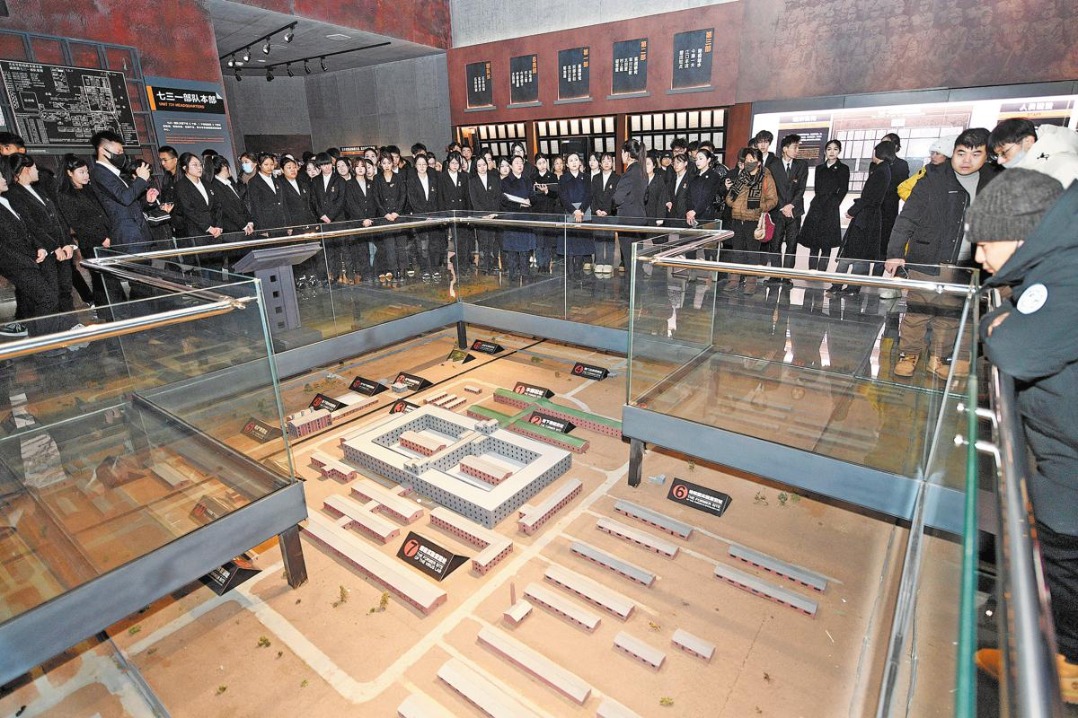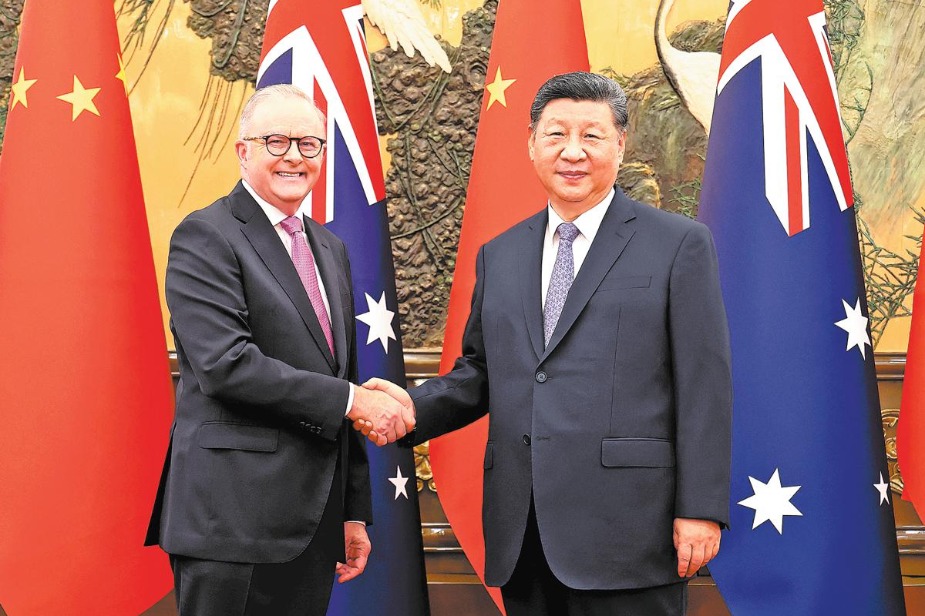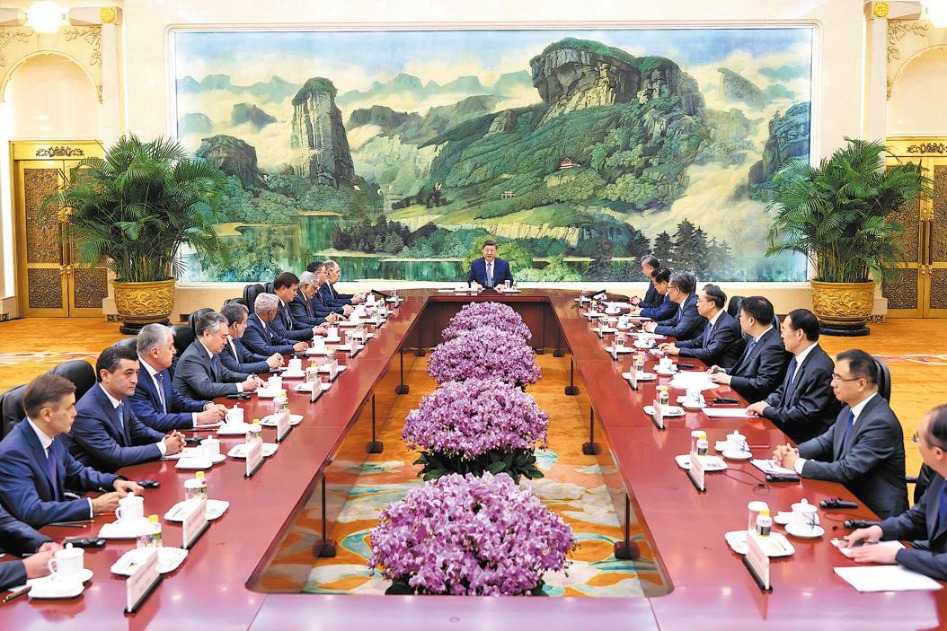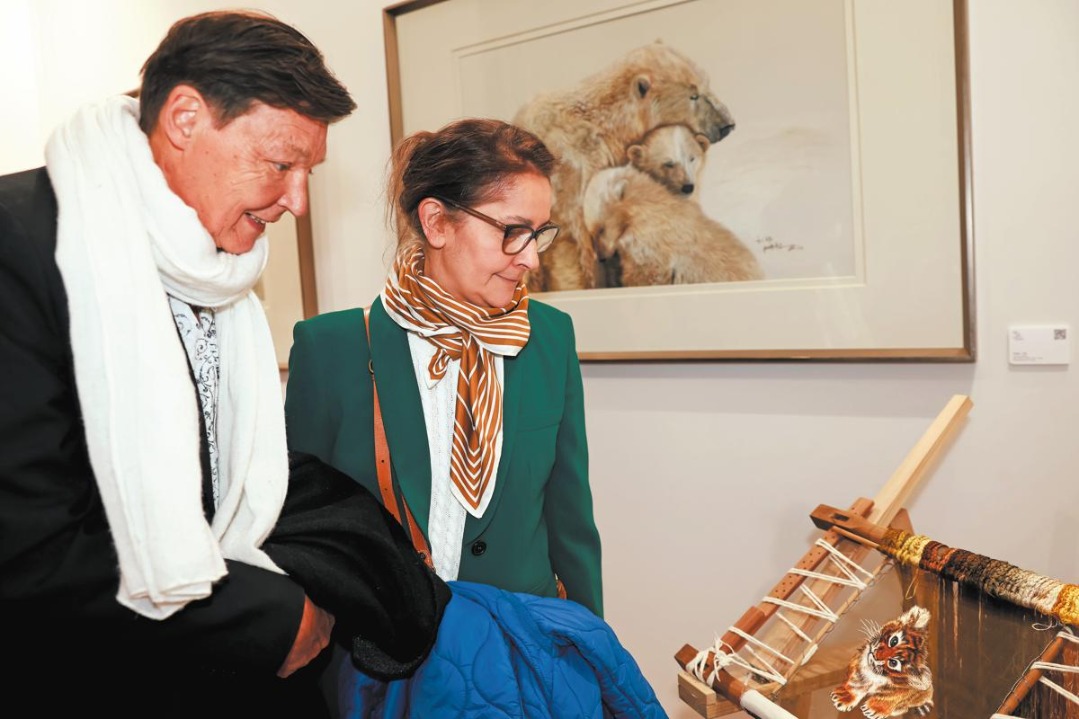Blood, sweat and tears

Xie Yingfeng, the head of Shanghai RH Union, talks about his passion and experiences in managing donation efforts for a very rare type of blood in China that only 3 out of 1,000 people have
Having become jaded with the pursuit of material wealth, Xie Yingfeng recently quit his job as a construction materials salesman to focus on helping those who are in the same shoes as him.
The blood that courses through Xie's veins is Rh-negative. In China, only three out of every 1,000 people have such blood, which has been dubbed "panda blood" because of its rarity.
There are four blood types in humans: A, B, AB, and O. Each blood type also has a Rhesus factor which makes it either Rh positive (Rh+) or Rh negative (Rh-). Generally, Rh-negative patients can only receive Rh-negative blood. Rh-positive patients, on the other hand, can receive blood from Rh positive and Rh negative donors.
According to Xie, many people do not know their blood factor until something unfortunate happens and they require a blood transfusion, which makes it more difficult to find a donor.
The 38-year-old has for the past 12 years been a member of Shanghai RH Union, a non-profit organization comprising volunteers who all have this rare blood type. Every year, the organization helps around 40 people who require such blood during a medical emergency.
Because the process of coordinating blood donations is a tedious one - he could receive as many as 200 phone calls a day from patients' families, fellow volunteers and blood donors - Xie decided to quit his full-time job to focus on helping others.
"It's hard for me to do a 9-5 office job as my phone is constantly ringing," said Xie, who is today the head of the Shanghai RH Union.
Xie is not being paid by the union and he currently has no concrete plans on how to put bread on the table, though he is considering selling food unique to his hometown in Urumqi, Xinjiang Uygur autonomous region, on social media platforms.
A chance discovery
Xie first found out he has Rh-negative blood in 2005 when he and his wife went to a hospital in Urumqi for a pre-marital health check-up.
Upon receiving the results of his blood test, Xie realized a group of doctors and nurses were elbowing their way through the crowd to have a look at the report. The doctor told Xie to undergo another test.
When two blood tests showed the same findings, the doctor then suggested that Xie get a third opinion at the largest hospital in Xinjiang. The result was the same.
Because Xie didn't have a computer at home, his wife looked up information about the blood type at her office.
"Take good care of yourself and don't get into fights. If you're injured, it's going to be difficult to find people to donate blood for you," was what Xie's wife jokingly told him.
Xie has never required a blood transfusion. Instead, he has since that day donated 10,000 cc of blood, more than twice the total amount in an adult.
He made his first donation not long after he got married, heeding the call of a local newspaper to help a pregnant woman who was in critical condition during labor. Although more than 30 people came forward to help, Xie was the only suitable donor as they both have AB negative blood, a type so rare only 0.1 percent of Asians have it.
Eager to save a life, Xie rolled up his sleeves and told the nurse to "draw as much as you want". He was told that a person can only donate a maximum of 400 cc at one time.
"If I were not there, there would have been nobody who could help," said Xie, who added that it was this very incident that compelled him to do more to help others.
He soon joined China Rh Union, a Beijing-based non-profit organization that currently has more than 50,000 Rh-negative blood donors. When he moved to Shanghai in 2007, Xie became the regional head of the city's union.
The role of regional heads is to collect information on patients who need rare blood, verify the information, disseminate the message to volunteers and look for donors. While many people are eager to help, not everyone is suitable, and it is up to Xie to find the eligible candidate.
For example, a person cannot donate blood within a week after consuming medication. Women who are menstruating or are breastfeeding cannot do so either. In addition, people can only donate blood once every six months.
Spreading the word
While details about the union can be found through online searches, Xie believes that only a minority of patients actually know about the organization. Furthermore, most people aren't sure of their blood factor. Tests for blood factor are only conducted during voluntary pre-marital checkups and pregnancy examinations in big cities and when people donate their blood or need a blood transfusion.
In order to grow the pool of blood donors, the union in China has raised nearly 100,000 yuan ($14,526) for a campaign - it will be launched later this year - to encourage Chinese to undergo medical tests to determine their blood types.
"We are cooperating with two hospitals in Beijing and one in Langfang, Hebei province. We will be advertising to the public that we have 1,000 people who can perform the blood test for free," said Wang Yong, head of China Rh Union.
The union will also be working to improve the processes at blood centers so as to ensure that donated blood is used efficiently. Wang, whose full-time job is a receptionist in a scenic spot in Beijing, explained that current regulations stipulate that blood has to be used within 35 days after it is drawn from a donor. If it isn't utilized, it has to be discarded.
"When donors see that their blood is not utilized after having spent so much effort to donate it, they may become less willingly to do so the second time round," said Wang.
"Each time I see news coverage about people swarming to blood centers to donate blood after a disaster, I believe benevolence is never in shortage in the society. A better system for blood donation and management, however, is definitely needed," he added.
Dealing with dilemmas
Although the number of union members have grown over the years, Xie said that some have left after encountering incidents where they failed to save a life.
"People are very enthusiastic about helping others when they first join the union. But upon encountering failure, it's hard for some people to get back up," said Xie.
One such incident took place a few years ago. After being notified that a 7-year-old girl with leukemia was in need of Rh-negative blood, Xie immediately set out in search of a suitable donor. The person he found was on a business trip in Henan province and this individual had specially booked a flight back to Shanghai just to help. However, the girl died around the same time the donor arrived at the hospital.
"Many of the volunteers couldn't sleep that night. The person who flew back to rescue the girl even started blaming himself, saying that he should not even have gone on the business trip," said Xie.
Xie said that some union members had left because they realized how lucrative donating blood can be. While there are laws that prohibit the sale of blood in China, illegal blood collection agencies still exist. Xie said that 400 cc of rare blood can fetch up to 20,000 yuan on the black market.
The biggest challenge of the job, Xie said, is having to decide whether to organize a donation effort for someone with a low chance of survival. For instance, in May last year, the father of a 2-year-old boy who was suffering from kidney failure approached Xie to help find 3,000 cc of Rh-negative blood for the operation. As difficult as it was, Xie declined to help.
"The hospital said that there was only a very small chance of success. In order to get 3,000 cc of blood, we needed to find eight donors. These donors might be able to save eight other patients who have a much better chance of survival," said Xie.
He later found out that the parents resorted to buying blood from illegal dealers. The boy, however, did not survive the operation.
"I face overwhelming pressure in such cases from the volunteers, the patients' family and my friends. But after all these years, I've become more rational, or perhaps you can even say numb. But the truth is that we can't always provide timely help to everyone," said Xie.
zhouwenting@chinadaily.com.cn
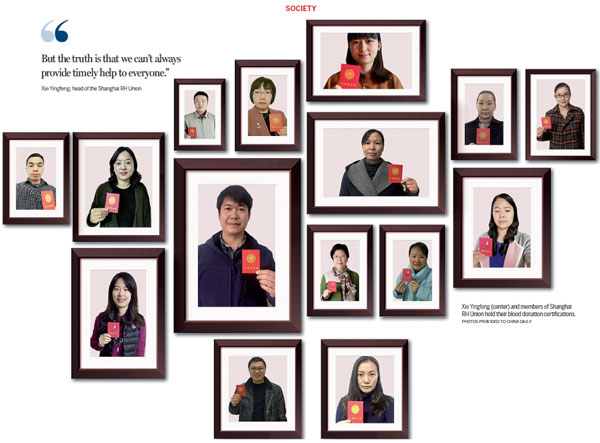
(China Daily USA 02/24/2017 page8)
Today's Top News
- Beijing supports Tehran in maintaining dialogue
- Stabilizing global supply chains vital to intl market
- Visa facilitation steps boost number of foreign visitors
- Japan hypes excuse for its military build-up: China Daily editorial
- Philippine defense secretary's remarks undermine regional peace efforts
- Mainland strongly opposes Lai's planned 'transit' through US


















